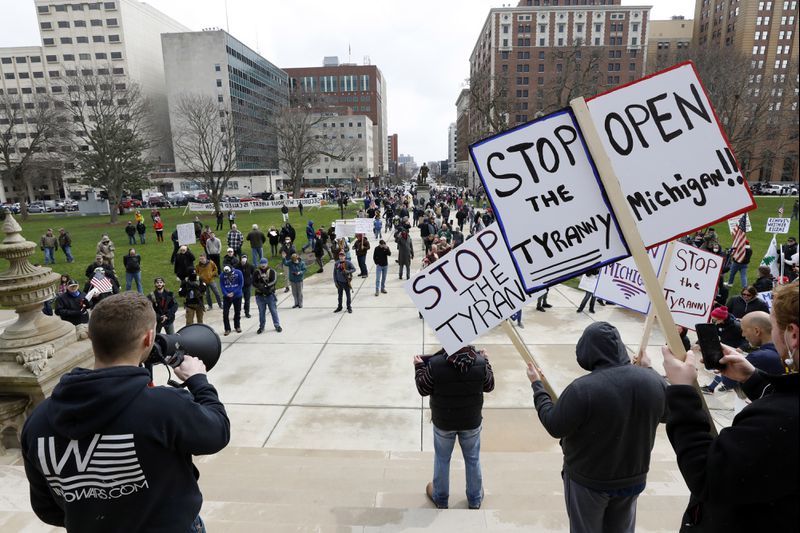
A report reveals that while COVID-19 lockdowns were touted as an effective means to mitigate the damages caused by the pandemic, the result appears to be the opposite: it's bad for people.
According to a report the American Institute for Economy Research released recently, the COVID-19 lockdowns affected people negatively, LifeSite News reported. This included having negative impacts on the mental and physical health of people, their livelihoods, and more.
The report, which can be accessed via the AIER, compiled pieces of evidence from various studies assessing the damage caused by the lockdowns across the country, particularly how the lockdowns and restrictions affected people's mental health, the unemployment rate, the economy, crime rates, education, and other services.
Lockdown Restrictions
COVID-19 lockdowns in various parts of the world are getting stricter due to a recent surge in the number of recorded cases. In the US, various states have each declared rules and restrictions touted to aid in preventing the spread of the virus.
In Ohio, Republican Gov. Mike DeWine announced a curfew from 10 p.m. to 5 a.m. for three weeks.
In Pennsylvania, the Department of Health director released rules requiring people to wear masks and exercise social distancing inside their homes.
In California, Democrat Gov. Gavin Newsom announced strict COVID-19 restrictions and placed the state in the Purple tier status, the most restrictive category among other color codes. The restrictions prevent people from gathering together, even for worship or to celebrate Thanksgiving.
Mental Health
The lockdowns have serious effects on mental health. According to a Centers for Disease Control and Prevention study released in August, the number of adults thinking of committing suicide doubled from its 4.3% rate in 2018 to 10.7% this year. In late June, 1 out of 4 adults aged 18-24 reported having thought of taking their own life.
The study also revealed that 40% of American adults said that they were struggling with mental health problems. Anxiety symptoms had tripled, while depression symptoms had quadrupled this year as compared to last year.
The CDC also reported that children were also affected by the mental health problems caused by the lockdowns. Mental health-related emergency room visits soared up by 24% for children between 5 and 11 years of age, and by 31% for children for children aged 12 to 17, as compared to last year's statistics.
Healthcare Services
The report also revealed that there was decline in the number of diagnoses, referrals, and treatment for cases other than COVID-19. For example, according to the Journal of the American Medical Association (JAMA), there is a 46.4% decrease in diagnoses for six cancers in the US since 2018.
This indicated that the pandemic negatively affected the care given to cancer patients. Debra Patt, MD, Ph.D., the lead author of a study that looked into the effects of COVID-19 in cancer care, expressed the dangers of this phenomenon.
"The decrease in screenings, diagnosis, and treatments this year will lead to later-stage cancers for patients, increasing morbidity and mortality for years to come," she said.
Unemployment Rate
The lockdowns also affected the livelihoods of people, most especially those in the low-income bracket. In March, 39 percent of people with a household income of $40,000 and below reported losing a job.
The food and hospitality industry also took a large hit. The restaurant industry alone, per the report, was "set to lose" eight million employees this year. The report also indicated that 1 out of 4 women have experienced job loss due to lack of childcare.
Overall, the unemployment rate increase to 14.7% in April this year is recorded as the highest unemployment rate.
Crime Rate
It's also worth noting that while the media focused on reporting COVID-related deaths, it didn't give as much focus on the increase in the number of crime-related deaths during the lockdowns.
According to the National Commission on COVID-19 and Criminal Justice, there was a 53% increase in homicides from June through August. The FBI also reported a 14.8% increase in murder and non-negligent manslaughter offenses during the first half of the year.
Domestic abuse also increased during the lockdowns. In the UK, for example, there has been a 25% increase in the number of calls to the domestic abuse charity, Refuge.




















